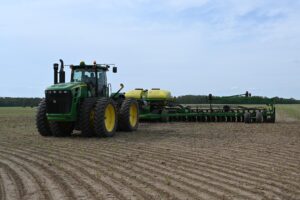Understanding the value of agricultural property is crucial for farmers, landowners, and investors alike. A farm appraisal is a professional evaluation that determines a farm’s worth based on various factors, from soil quality to market conditions. Whether you’re purchasing land, selling, or seeking financing, an accurate appraisal ensures informed decision-making.
How Farm Appraisals Are Conducted
 A licensed appraiser assesses farm properties using different valuation methods to establish a fair market estimate. Unlike residential or commercial real estate, agricultural properties require specialized evaluation due to their unique characteristics. Factors like crop yields, irrigation systems, and soil productivity play a significant role in determining value.
A licensed appraiser assesses farm properties using different valuation methods to establish a fair market estimate. Unlike residential or commercial real estate, agricultural properties require specialized evaluation due to their unique characteristics. Factors like crop yields, irrigation systems, and soil productivity play a significant role in determining value.
Appraisers typically rely on three key approaches:
-
Income approach – Estimates value based on potential earnings from crops, livestock, or lease agreements.
-
Cost approach – Calculates value by determining the cost to replace the land and farm structures.
-
Sales comparison approach – Compares the farm to similar properties that have recently sold in the area.
Factors That Influence Farm Appraisal Values
Several elements impact a farm’s appraised value, including:
-
Soil quality and land productivity – Higher-quality soil and arable land increase value.
-
Water rights and irrigation – Access to reliable water sources can significantly influence worth.
-
Current agricultural market trends – Prices of crops and livestock directly affect farm values.
-
Farm infrastructure – Buildings, fencing, and equipment also contribute to overall valuation.
-
Government regulations and zoning laws – Conservation easements, land use restrictions, and tax incentives play a role in appraisal outcomes.
Additionally, appraised value does not factor in urgent selling needs. If a farmer must sell quickly, the final sale price may differ from the appraisal.
Why Farm Appraisals Are Important
Accurate appraisals are essential for financing, estate planning, and taxation. Banks and lenders use farm appraisals to determine loan eligibility, while property owners rely on them for fair pricing during sales or inheritance planning. If an appraisal is lower than expected, buyers may negotiate a new price or seek additional funding options.
Final Thoughts
A farm appraisal provides clarity and confidence in real estate transactions. Whether you’re expanding your farm operation, applying for a loan, or preparing to sell, understanding how agricultural properties are valued will help you make sound financial choices.
Be prepared for your farm appraisal by reading Prairie Farmer’s 5 Things an Appraiser Will Ask You.
Now, discover Why You Should Consider Lisa in your next farmland transaction!
